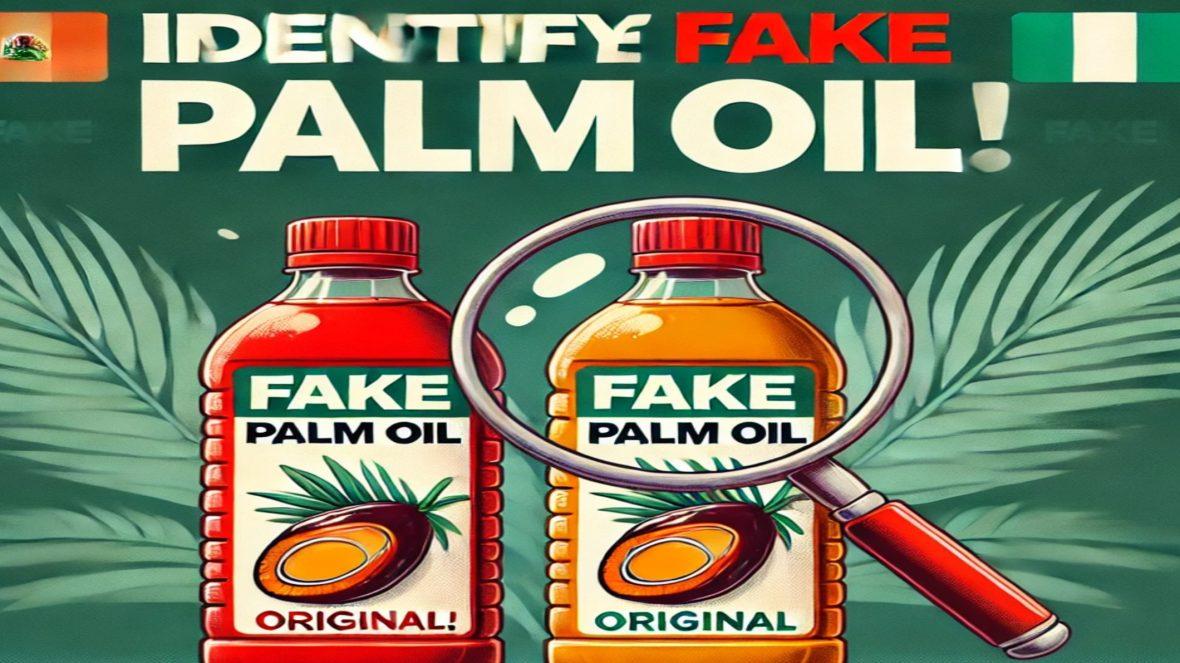Palm oil is one of the most widely used cooking oils in Nigeria, a staple in countless traditional dishes. However, with its popularity comes a major issue—counterfeit palm oil flooding the market. Fake palm oil poses serious health risks and is often produced in unethical ways, harming both consumers and the environment. In this comprehensive guide, we will explore how to identify fake palm oil, and where to buy authentic, high-quality palm oil in Nigeria.
Why Fake Palm Oil is a Problem
Fake palm oil is rampant in many parts of Nigeria, and the consequences of consuming these counterfeit products can be severe.
1. Health Risks of Consuming Fake Palm Oil
Fake palm oil often contains harmful additives like artificial coloring, dyes, and low-quality oils that may pose health risks such as:
- Toxins and chemicals that cause stomach irritation, food poisoning, or long-term health problems.
- Artificial colorants, which may lead to allergic reactions, skin issues, and more serious conditions like cancer after prolonged exposure.
2. Economic Impact on Local Palm Oil Producers
When consumers purchase fake products, it directly affects local farmers and producers of authentic palm oil, driving them out of business and decreasing the quality of products available in the market.
3. Environmental Concerns Linked to Fake Palm Oil
Fake palm oil production often involves unsustainable practices that harm the environment. This includes deforestation and pollution caused by chemical waste.
How to Identify Fake Palm Oil
Knowing how to spot fake palm oil is crucial for protecting your health and ensuring you’re supporting ethical practices. Below are some foolproof methods to help you distinguish between real and fake palm oil.
1. Visual Differences
- Color: Genuine palm oil typically has a rich, golden-red hue. In contrast, fake palm oil may look overly bright or have an unnaturally dark color due to the use of chemical dyes.
- Consistency: Authentic palm oil has a thick, viscous consistency. If the oil feels too thin or watery, it’s likely mixed with other oils or chemicals.
2. Smell
- Authentic palm oil has a distinct, natural aroma that is earthy and slightly nutty. Fake palm oil, on the other hand, may smell too strong or have an off-putting chemical odor.
3. Taste Test
- Genuine palm oil tastes mildly sweet and savory. Fake palm oil, often made with additives, may taste bitter or metallic. Try a small amount to detect any unusual flavors.
4. Packaging and Labeling Clues
- Be sure to check for certifications and authentic branding on the label. NAFDAC-approved palm oil will have clear labeling, and most reputable brands ensure proper sealing and packaging.
- Fake oils often have poor labeling, missing certification stamps, and may come in poorly sealed containers.
5. Palm Oil Solidification Test
- Pure palm oil tends to solidify when exposed to lower temperatures (below 20°C). You can try refrigerating a sample; authentic palm oil should become cloudy and solid, while fake oil may stay liquid or remain clear.
6. Water Test
- A simple way to test your palm oil is by adding water to a small amount of the oil. Real palm oil will remain intact while fake oil may mix unevenly with the water or appear cloudy.
Common Types of Fake Palm Oil
There are various forms of fake palm oil, but the most common types include:
- Palm Oil Mixed with Dyes or Chemical Additives: This type of fake oil often looks brighter or darker than natural palm oil.
- Blended with Other Vegetable Oils: Counterfeiters may mix palm oil with cheaper oils like vegetable oil or sunflower oil, diluting its quality.
- Diluted with Water or Low-Quality Oils: In some cases, water or poor-quality oils are added to stretch the product and maximize profit.
Where to Buy Authentic Palm Oil in Nigeria
When it comes to purchasing palm oil, buying from trusted sources is key to ensuring authenticity. Here are a few reliable places to get authentic palm oil in Nigeria:
1. Local Farmers and Markets
- Mile 12 Market, Lagos: One of the largest food markets in Lagos, Mile 12 is known for selling farm-fresh products directly from local producers. Here, you can find original palm oil from reputable sellers.
- Oja Oba Market, Ibadan: A well-known market for local produce in Ibadan, Oyo State, offering pure, unadulterated palm oil straight from small-scale farmers.
- Oyingbo Market, Lagos: Another bustling food market where local vendors sell pure palm oil that hasn’t been tampered with.
2. Organic and Fair Trade Stores
- Ebeosi Palm Oil: This brand is known for selling premium, organic palm oil both locally and online. Their products are NAFDAC-approved and sourced directly from smallholder farmers.
- Simply Green: Located in Lagos, Simply Green sells organic foods and authentic palm oil sourced sustainably. You can visit their store or order online.
3. Online Retailers
- Jumia Nigeria: Jumia offers a range of palm oil brands, including local producers. Look for NAFDAC-approved products from trusted sellers.
- Konga: Another reliable online platform that offers authentic palm oil from verified vendors. Check for customer reviews to ensure you’re getting high-quality oil.
What to Do If You Suspect Fake Palm Oil
If you suspect you’ve purchased fake palm oil, there are several steps you can take to address the issue:
1. Reporting to Authorities
- Contact NAFDAC (National Agency for Food and Drug Administration and Control) to report fake or substandard palm oil. They have the mandate to investigate and remove counterfeit products from the market.
2. Disposing of Fake Palm Oil
- Never consume suspected fake palm oil. Dispose of it safely by sealing it in a container and discarding it in a way that ensures it won’t be resold or consumed by others.
3. Seeking Compensation or Refunds
- If you bought the palm oil from a reputable retailer, you may be entitled to a refund or exchange. Ensure you keep your receipt as proof of purchase.
Healthier Alternatives to Palm Oil
If you’re concerned about consuming palm oil or want to switch to healthier oils, consider the following alternatives:
- Olive Oil: High in antioxidants and heart-healthy fats, olive oil is a great alternative for cooking.
- Coconut Oil: Known for its health benefits, including boosting metabolism and supporting immune function.
- Groundnut Oil: Popular in Nigeria, groundnut oil is a good substitute with a high smoke point, making it ideal for frying.
Sustainable and Ethical Palm Oil Practices
To ensure you’re consuming palm oil that is both authentic and ethical, look for certifications like Fair Trade and RSPO (Roundtable on Sustainable Palm Oil). These labels guarantee that the palm oil was produced using environmentally friendly practices that do not contribute to deforestation.
Conclusion
Identifying fake palm oil in Nigeria is essential for your health, the environment, and supporting local farmers. By using the methods outlined in this guide, you can protect yourself from counterfeit products and encourage sustainable palm oil production. Always buy from trusted sources, and if in doubt, report any suspicious products to the appropriate authorities




